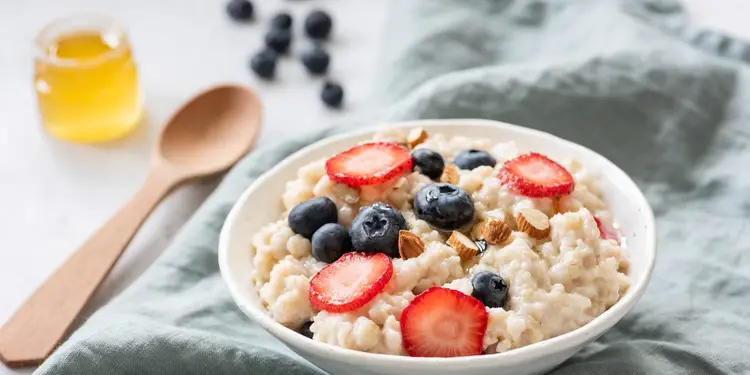Should porridge be considered junk food under new UK ad rules?

Advertisements for common breakfast items such as oatmeal, muesli, and crumpets will soon be prohibited due to the UK's new stringent regulations on junk food advertising. This legislation, designed to combat childhood obesity, focuses on foods that are high in sugar, salt, or fat, even if they are often considered "healthy."
Beginning in October of next year, businesses will no longer be allowed to promote unhealthy food on television or online before 9 PM. This decision represents a major step forward in the government's initiative to lessen children’s access to unhealthy food options. Officials anticipate that this change will lead to a reduction of 7.2 billion calories from the diets of children in the UK each year, which is expected to help prevent around 20,000 instances of childhood obesity.
"Obesity takes away from our children's chances of having a great start in life, leads to long-term health issues, and burdens the NHS with massive expenses," stated Wes Streeting, the Secretary of State for Health and Social Care. "Our government is taking immediate steps to stop junk food advertisements aimed at children, both on television and online. This is the initial move towards changing our healthcare approach from simply treating illness to emphasizing prevention, aligning with our goal of ensuring that every child begins life healthy and happy."
Is Porridge Considered Junk Food?
The addition of common breakfast foods has led to some discussion. Some of the specific items being focused on include 'breakfast cereals like ready-to-eat options, granola, muesli, porridge oats, and various other oat-based cereals.'
However, research and health organizations, such as the NHS and the British Heart Foundation, recommend unsweetened porridge oats as a nutritious breakfast choice. They highlight their significant fiber content and the possibility of reducing cholesterol levels.
Nutritionist Tina Lond-Caulk, known as The Nutrition Guru, previously shared with Women's Health that oats are truly great for our health. They are high in soluble fiber, especially beta-glucans, which can help decrease bad cholesterol and lower the chances of developing heart disease. Additionally, oats are full of important vitamins, minerals, and antioxidants, such as magnesium, phosphorus, manganese, and iron.
Some critics believe that increasing the use of porridge oats might unfairly portray them as negative, despite the fact that when eaten in their original state, they can actually contribute to a healthy diet.
Professor Gunter Kuhnle, a specialist in nutrition and food science from the University of Reading, criticized the suggestions as being 'not beneficial'. He pointed out that certain foods mentioned, like porridge and some cereals without added sugars, are likely quite nutritious.
Alex Cole-Hamilton, the leader of the Scottish Liberal Democrats, had previously expressed during a discussion about comparable Scottish regulations that "the simple porridge oat is a staple for many people in Scotland for their meals at work and school. It seems excessive and a bit unreasonable to focus specifically on it in the government’s efforts to restrict advertising for unhealthy foods."
Crumpets, scones, croissants, chocolate-filled pastries, pancakes, waffles, muffins, flapjacks, and mini rolls are now classified as junk food according to the recent advertising restrictions.
Although many experts believe that restricting the advertising of sugary snacks, chips, cookies, sodas, and candies is beneficial, nutritionists are advising lawmakers not to categorize all oat-based products as unhealthy processed foods. Dietitian Dr. Carrie Ruxton stated that this approach could convey a misleading message and cautioned the government against making sweeping generalizations in their efforts to combat obesity.
"I'm worried that the new regulations might also include other essential foods that have small amounts of sugar or salt," she said. "Take kids' yoghurts and fromage frais, for instance. They're high in calcium and often have added vitamin D. The fact that they contain a bit of sugar helps make them more appealing, otherwise most kids would shy away from them."
In a similar vein, when it comes to breakfast cereals, certain varieties are great sources of fiber and whole grains. However, for many people, if they didn't contain a little sugar and salt, they might taste quite unappealing. A few years ago, Public Health England highlighted the yogurt and breakfast cereal sectors for their effective efforts in cutting down sugar content. To criticize them now would send a misguided message.
Explore More About Nutrition
Eliminate the distractions and receive straightforward, professional guidance, home exercise routines, simple nutrition tips, and more straight to your email. Subscribe to the WOMEN'S HEALTH NEWSLETTER.











































